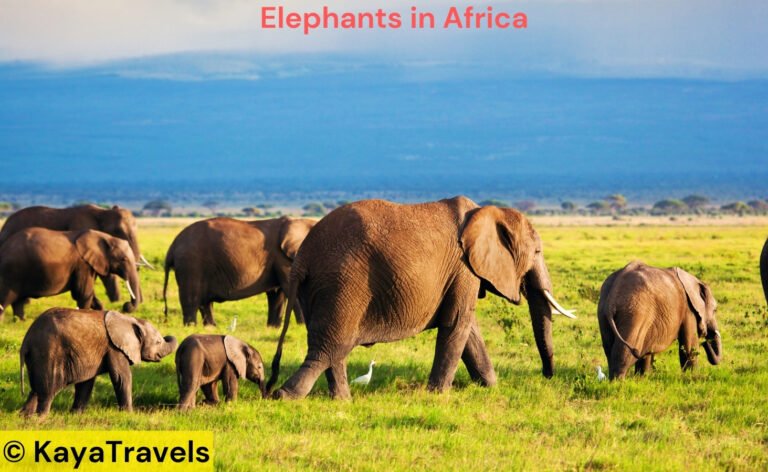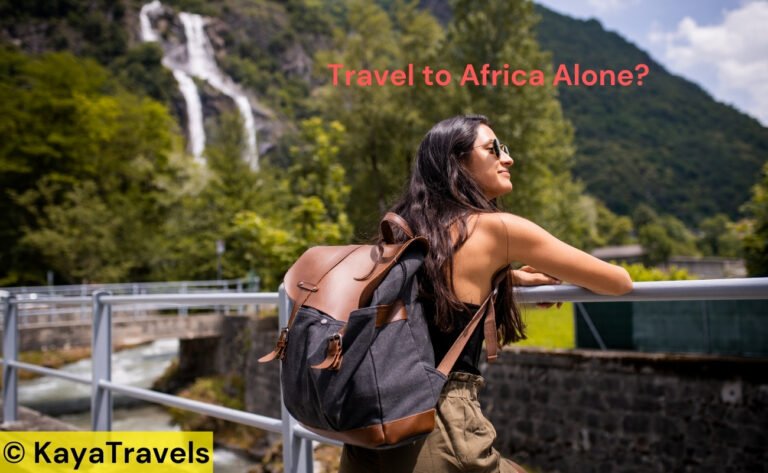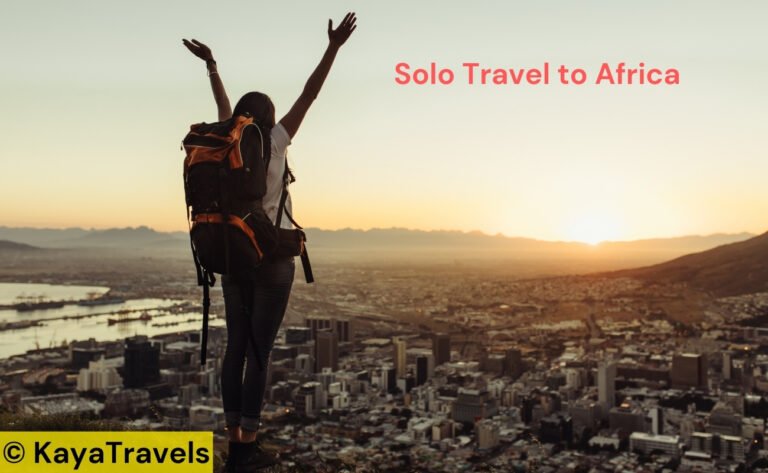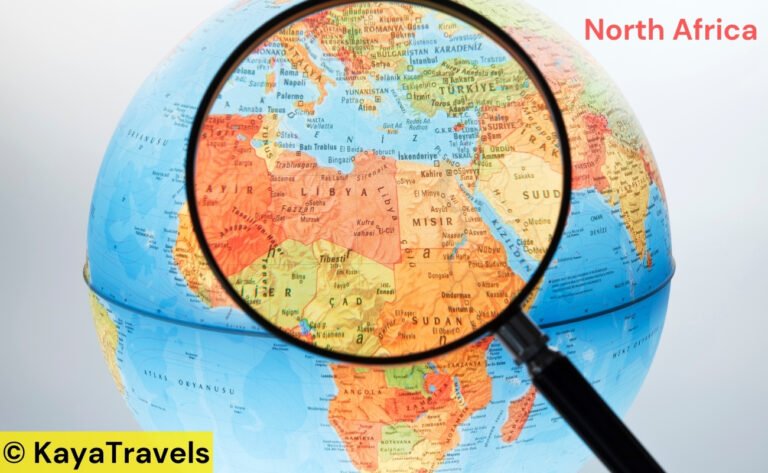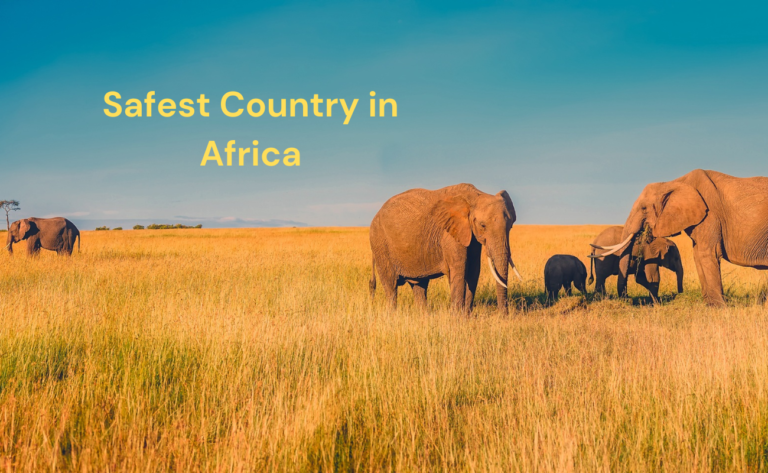Travelling to Africa requires careful preparation to ensure a memorable and safe experience. Whether you’re planning a safari, visiting historical sites, or engaging with diverse cultures, a few key preparations can make all the difference. Equipped with a proper checklist, your journey across this vast continent can be smooth and fulfilling.
Essential items on your packing list should include relevant vaccinations and travel insurance documentation. To protect against common diseases, consult with a healthcare provider regarding vaccinations well ahead of your departure.
Alongside your health preparations, ensure you have a valid passport with at least two blank pages and verify whether your destinations require visas. Pack a first aid kit with personal medications, and consider bringing multivitamins or immune boosters to maintain your health during travel.
Remember to include practical items in your luggage, such as lightweight clothing suitable for variable weather conditions, a durable bag for your adventures, and a good-quality hat to shield you from the sun.
It’s beneficial to carry enough prescription drugs for your entire trip alongside copies of your prescriptions.
Moreover, invest in quality travel gear like a sturdy camera to capture your experiences, and always plan your transportation, whether it involves taxis, buses, or other local options.
Preparing Your Travel Documents
To ensure a smooth trip to Africa, you’ll need to have all your travel documents in order.
Passport and Visas
Your passport is your essential travel document. Make sure it’s valid for at least six months after your planned return date. Each African country has its visa requirements, and they can differ depending on your nationality.
- Republic of the Congo: You need a visa before arrival.
- Mozambique: Visas can be obtained on arrival, but securing one beforehand is advised.
Prepare the necessary paperwork ahead of time. You can find specific visa requirements on the respective embassy or consulate websites.
Vaccination Requirements
Before travelling, it is important to visit your doctor or a travel clinic. They’ll inform you about the necessary vaccinations for your destination in Africa.
- Yellow Fever: Essential for countries like the Republic of the Congo; some nations require proof of vaccination for entry.
- Routine Vaccinations: These include MMR (measles, mumps, and rubella) and polio; ensure these are up-to-date.
- Other Vaccinations: Hepatitis A, typhoid, and potentially rabies, depending on your activities.
Always check for any recent changes in health advisories for the region you plan to visit.
Managing Finances Abroad
When travelling to Africa, managing your finances with care is crucial for a smooth trip. By understanding the local currency and banking systems, you can ensure that you always have access to funds when you need them.
Currency and Exchange
Africa comprises numerous countries, each with its currency. Before you travel, it’s essential to know the currency used in your specific destination. For example, South Africa uses the South African Rand, while Kenya uses the Kenyan Shilling.
Check the exchange rates before you leave so you have a rough idea of the conversion rates. It’s often best to exchange a small amount of money into the local currency before you arrive for immediate expenses like transportation.
- Exchange Locations:
- Airports
- Banks
- Local authorized exchangers
Remember:
- Airport exchange rates may be higher.
- Always ask for a receipt.
Banking and ATMs
Secure access to your money is essential while abroad. African countries have varying availability of ATMs and banking facilities.
Major cities and tourist areas in countries like Egypt, Morocco, and Tunisia are likely to have numerous ATMs accessible. However, regions such as Namibia, Botswana, and Zambia may have less coverage.
- Things to Do:
- Inform your bank that you’re travelling to avoid blocked transactions.
- Carry multiple forms of payment, such as a credit card and a debit card.
- Consider withdrawal fees and daily limits before you travel.
Note: ATMs in some countries may not be as reliable or might have higher fees. Plan to take out more significant amounts less frequently to minimize fees.
By preparing your finances for the trip, you can focus on the beauty and excitement of Africa without the hassle of monetary concerns.
Health and Safety
When planning your travels to Africa, ensuring your health and safety is paramount. There are specific measures you can take to protect yourself from diseases and personal threats, providing peace of mind during your journey.
Protecting Against Diseases
It’s crucial to be proactive about your health. Here’s what you need to know:
- Vaccinations: Make sure you’re up to date with routine vaccines. Additionally, some countries require proof of yellow fever vaccination.
- Malaria: This mosquito-borne disease is prevalent in many African countries. Protection includes antimalarial drugs and mosquito avoidance strategies.
- Mosquito Protection: Use insect repellent with DEET, and sleep under a mosquito net if you’re staying in an area with a high risk of malaria or Zika virus.
- Travel Insurance: Ensure it covers medical evacuation in case of serious illness or injury.
- Doctors: Know how to contact a doctor or access a clinic, especially in rural areas.
Personal Safety Tips
Your security is equally as important. Keep these tips in mind:
- Travel Insurance: It isn’t just for health; make sure it covers theft and loss of possessions.
- Security: Stay aware of your surroundings. Avoid high-risk areas, especially at night.
- Theft Prevention: Keep valuables out of sight, use hotel safes, and be cautious while using ATMs.
- Evacuation Plans: Familiarize yourself with the emergency evacuation procedures provided by your travel insurance, just in case.
- Local Emergency Numbers: Have them at hand for immediate access.
By taking these precautions, you can increase your safety and enjoy a healthier travel experience in Africa.
Creating Your Itinerary
When planning your journey to Africa, it’s crucial to map out your trip meticulously. This includes deciding where to go and how to get around, as well as where to stay.
Choosing Destinations
Africa, a vast continent with diverse attractions, caters to various interests, from safaris to trekking, cultural experiences to beach relaxation. Here’s how you can select your destinations:
- Identify Interests: Are you dreaming of an African Safari? Kenya, Tanzania, and South Africa’s Kruger National Park may be top choices. For mountain gorilla trekking, Uganda or Rwanda could be on your list.
- Consider Climate: The weather varies considerably across the continent. Southern Africa has a mild climate, while the Sahara Desert, Kalahari, and sub-Saharan Africa offer more extreme conditions. Always check the climate of your intended destinations.
- Cultural Experiences: Countries like Ethiopia, Morocco, and Egypt are rich in history and culture. Determine if these align with your interests.
- Scenery and Beaches: The Seychelles and Madagascar are known for stunning beaches, while countries like Namibia boast dramatic landscapes.
Remember to research visa requirements and vaccinations needed for the countries on your itinerary.
Accommodations and Transportation
Your choices for accommodations and transportation are pivotal in shaping your African experience.
- Accommodations: They range from luxury lodges to budget homestays. Booking ahead is advisable, especially in popular safari areas like the Serengeti or near the Indian Ocean coast.
- Transportation: Your options include domestic flights, rental cars, or public transport. In big cities, public transport is often available, while in remote game reserves, guided safaris are the norm. Plan for different modes depending on your destinations.
Remember to pack essentials like sunscreen to guard against the strong African sun, and always stay informed about the local weather to ensure your comfort on the move.
Packing and Gear
When packing for your African adventure, consider the region’s diverse climates and the activities on your itinerary.
Your packing list and gear should be carefully selected to match the conditions you’ll face, from the heat of the Sahara to the cooler areas of Southern Africa.
Prioritize essentials that cover protection from the sun, varying temperature shifts, and gadgets for documenting your journey.
Essential Items for the African Climate
Africa’s weather can be unpredictable, with a hot sun during the day and sometimes chilly nights. Your packing list should include lightweight clothing for the heat and layers for the evenings. Here are the fundamental essentials:
- Comfortable, breathable clothing: Light fabrics like cotton or linen
- A sturdy pair of shoes: Ideally, hiking boots or a durable pair of walking shoes
- Sun protection: A wide-brimmed hat, sunglasses, and strong sunscreen
- Insect repellent: To protect against mosquito bites in sub-Saharan and East Africa
- A light jacket or sweater for cooler evenings or higher altitudes
- For desert areas like the Sahara or Kalahari, long-sleeved shirts and pants to protect against sand and sun
Remember to adjust your packing list based on the specific regions you’ll be visiting within Africa.
Photography and Technology
You’ll definitely want to capture the memories of your African travels, so including the right tech and camera gear is essential.
- Camera: A durable camera that can withstand dusty or damp conditions, with extra batteries
- Phone: In case of emergency and for additional photos
- Chargers and adaptors: Power outlets can vary, so bring universal adapters
- Backup storage: Such as extra SD cards or a portable hard drive
- Guidebook and itinerary: To stay informed and on track with your travel plans
Whether you’re watching wildlife or immersing yourself in the local culture, having the right photography equipment will allow you to preserve those moments forever.
Pack smart be prepared for the varied African environments, and you’ll have a comfortable and exciting journey.

